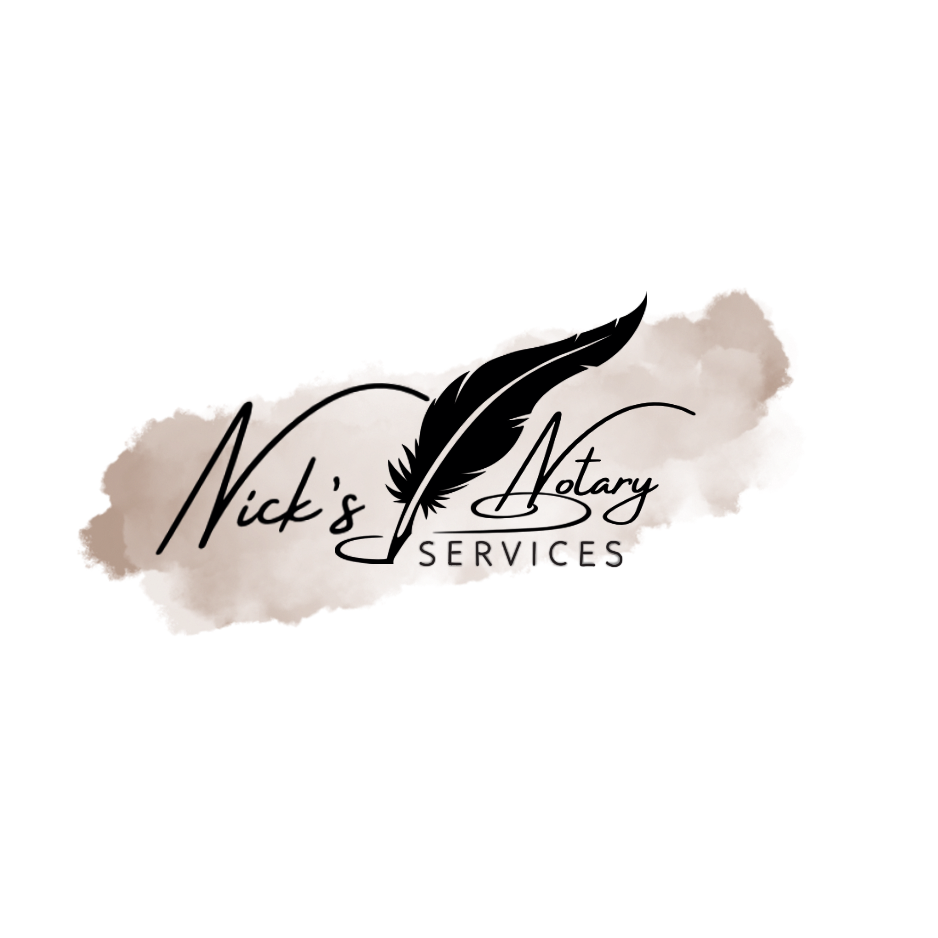
Frequently asked questions.
Common Notary Questions
What is a notary public?
A notary public is an official appointed by the state government to serve as an impartial witness to the signing of important documents and to administer oaths.
Why do I need to get my document notarized?
Notarization adds an extra layer of authentication to your document, verifying its legitimacy and deterring fraud.
What types of documents typically require notarization?
Common documents that often require notarization include contracts, wills, deeds, powers of attorney, affidavits, and mortgage documents. It would be challenging to list every type of document that would be notarized.
What is the process for in-person notarization?
In-person notarization typically involves bringing your unsigned document and a valid form of identification to a notary public. The notary will then verify your identity, witness the signing of the document, and affix their official seal or stamp.
What is remote Online Notarization(RON)?
Remote notarization allows individuals to have their documents notarized electronically, without the need for an in-person meeting. This is typically done through secure online platforms where the signer and the notary can communicate and verify identities in real-time through audio and video technology.
How does remote notarization work?
In remote notarization, after verifying your identity and witnessing your signing of the document through audio-video technology, the notary will electronically affix their official seal or stamp to the document. The completed document is then securely transmitted back to you. You will need a valid ID and a smartphone or PC/Laptop with audio and video capabilities.
Is remote notarization legal?
The legality of remote notarization varies by jurisdiction. Many states have enacted laws allowing for remote notarization, while others require in-person notarization. It's important to check the laws in your state regarding remote notarization.
What are the benefits of remote notarization?
Remote notarization offers convenience, allowing you to get your documents notarized from the comfort of your home or office. It can save time and eliminate the need for travel to a notary's office, particularly in situations where in-person meetings are difficult or impractical.
Signing Real Estate Documents Questions
What types of real estate documents typically require notarization?
Common real estate documents that often require notarization include deeds, mortgages, lease agreements, property transfer documents, affidavits of title, and power of attorney for real estate transactions.
What is the role of a Signing Agent in real estate transactions?
A notary public acts as an impartial witness to the signing of real estate documents. They verify the identity of the signers, witness the signing process, and affix their official seal or stamp to the documents to certify their authenticity.
Can real estate documents be notarized remotely?
The legality of remote notarization for real estate documents varies by jurisdiction. While some states allow remote notarization for certain types of real estate transactions, others may require in-person notarization. It's essential to check the laws and regulations in your state regarding remote notarization for real estate documents.
What is the process for notarizing real estate documents in person?
In-person notarization of real estate documents involves bringing the unsigned documents and valid identification to a notary public. The notary will verify the identity of the signers, witness the signing of the documents, and affix their official seal or stamp to certify them.
What should I bring to Loan Signing?
When signing real estate documents before a notary, you should bring the unsigned documents, valid identification (such as a driver's license or passport), and any other relevant paperwork or forms required for the transaction. Note some documents may require additional identification. Speak directly with your Loan Officer to find out exactly what you need to bring.
Nick's Notary Services Privacy Policy
Privacy Policy
At Nick's Notary Services, we value and respect your privacy. This Privacy Policy outlines how we collect, use, and protect your personal information when you use our services.
Information We Collect:
Personal Information: When you use our services, we may collect personal information such as your name, contact information, and other details necessary for providing our services.
Usage Information: We may collect information about how you use our services, such as the pages you visit and the actions you take.
How We Use Your Information:
Provide Services: We use your information to provide notarial services and fulfill your requests.
Improve Services: We may use your information to improve our services and tailor them to your needs.
Communication: We may use your information to communicate with you about our services and updates.
Information Sharing:
We do not sell, trade, or otherwise transfer your personal information to third parties without your consent, except as required by law.
Data Security:
We take precautions to protect your personal information and use industry-standard security measures to ensure its security.
Changes to Privacy Policy:
We may update our Privacy Policy from time to time. We will notify you of any changes by posting the new Privacy Policy on this page.
By using our services, you agree to the collection and use of your information as outlined in this Privacy Policy.

